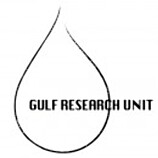
Archive: Gulf Research Blog
Blog articles from 2009 to 2012. The Gulf Research Unit is research programme based at the University of Oslo.
Kazim al-Haeri’s Elections?
Denne artikkelen er over ti år gammel og kan inneholde utdatert informasjon.
By Reidar Visser
Among the more overlooked aspects of the Iraqi parliamentary elections that take place on Sunday is the fact that Kazim al-Haeri, a hardliner cleric of Iraqi origin residing in Qum in Iran, enthusiastically supports participation.
Haeri belongs to a particular class and generation of Shiite scholars: He is an old-school Khomeinist. Always loyal to the paradigm of wilayat al-faqih, he has written extensive treatises on the inviolability of the power of the supreme leader, not only inside Iran but throughout the Shiite world. He remained supportive of such views when Khamenei emerged as Khomeini’s successor in the first half 1990s; after 2003 he has formed an important (if not always stable) bridge between Iranian leaders and the Sadrists of Iraq. In this role, Haeri forms the juncture where orthodox Khomeinism and radical Sadrism of southern Iraq meet, and where Tehran has found its best vantage point for domesticating radical Iraqi trends and transforming them into tools of its own interests.
Much is indeed at stake for Iranian strategy in Iraq this weekend. It seems clear that the policy of promoting unity in Shiite ranks has scored certain successes over the past year or so, notably in defining the atmosphere of the elections. In that respect, the reversion to de-Baathification as a dominant theme has been a clever move, serving to nudge the tentatively-nationalist Nuri al-Maliki back towards a more sectarian agenda. Today came yet another variation of this theme: the justice and accountability board declared that 55 of the candidates that had replaced banned candidates were themselves subject to de-Baathification! IHEC, the elections commission, responded by saying that the issue would have to be discussed after the elections, thereby making sure de-Baathification remains on the agenda.
However, the strategy has not succeeded one hundred percent. The Shiites are still contesting as separate entities, even if talk about post-election reunification is now more frequent than was the case only a few months ago. Occasionally, at least, Maliki reverts to what was his basic message back in 2009: The need to have a smaller-sized, ideologically coherent government capable of making decisions instead of focusing on “representation” of (i.e. patronage for) parochial interests defined in ethno-sectarian terms. Whereas his departure from this theme have been more frequent lately, one still sometimes senses a desire on the part of his coalition to remain separate from its old coalition partner, the Iraqi National Alliance – even though even the most optimistic predictions now tend to make this kind of more narrow alliance (say, a coalition with the Kurds only, without INA) a somewhat unrealistic proposition. Indications are that State of Law is still looking strong in the cities of Basra and Baghdad (and there are 68 seats up for grabs up in the latter); at the same time the sheer arithmetic of the changes in alliance patterns in the Shiite-majority governorates since 2009 (with Sadrists and Jaafari joining INA) could suggest that INA strength in the centre and the south is underestimated in polls focused on the biggest urban areas.
There are also potential cracks in the INA camp. Recently Salah al-Ubaydi, a Sadrist leader, dramatically declared that INA was “without leadership” – an astonishing break with coalition discipline on the eve of the elections – and went on to point to differences with the Kurds on federalism (many of which in fact also apply to ISCI–Sadrist relations). Similarly, many Sadrists express confidence that the open-list system will provide them with a stronger position in the next parliament than the elite-based quota-distribution used for the election lists would suggest, thereby strongly hinting that the post-election coalition-forming scenarios may go beyond the game of aligning the six dominant coalitions. Instead the upcoming negotiations can conceivably also come to include reshuffling the existing coalition line-ups (for example, some of the recent rumours about INA-Iraqiyya flirtation in reality relates to Iraqiyya and the Sadrists). Still, other Sadrists take a more pragmatic view on relations with ISCI and Daawa, such Bahaa al-Aaraji who last autumn was a leading figure in reconstituting the parliamentary Shiite–Kurdish majority in the context of the election law.
In fatwas on his website, Haeri has in the past encouraged the Shiites of Bahrain to seek “executive rulings” by Khamenei to guide them in their affairs. However, with the publication of a constitutional draft for Iraq in 2004, one could get the sense that he now envisaged a degree of Iraqi autonomy within his pan-Shiite cosmology, since a separate constitutional court would come into being. At any rate, cooperation with secularists seems to remain a difficult theme for him. In a work of collected fatwas, Haeri once answered a question of whether Muslims could be members of political parties in the United States (the Republicans and the Democrats were specifically mentioned) by asserting that “Muslims cannot be members of unbelieving parties”. Back at the time of the elections in the first elections in 2005 he warned the Shiites against the secular lists which were “almost the same as the Baath”; this time around he urges participation “to prevent the return of the tyrant”. Haeri’s warnings against Shiite disunity and secularism may form an apt reflection of prevailing moods in hardliner circles in Tehran on the eve of Iraq’s parliamentary elections.






